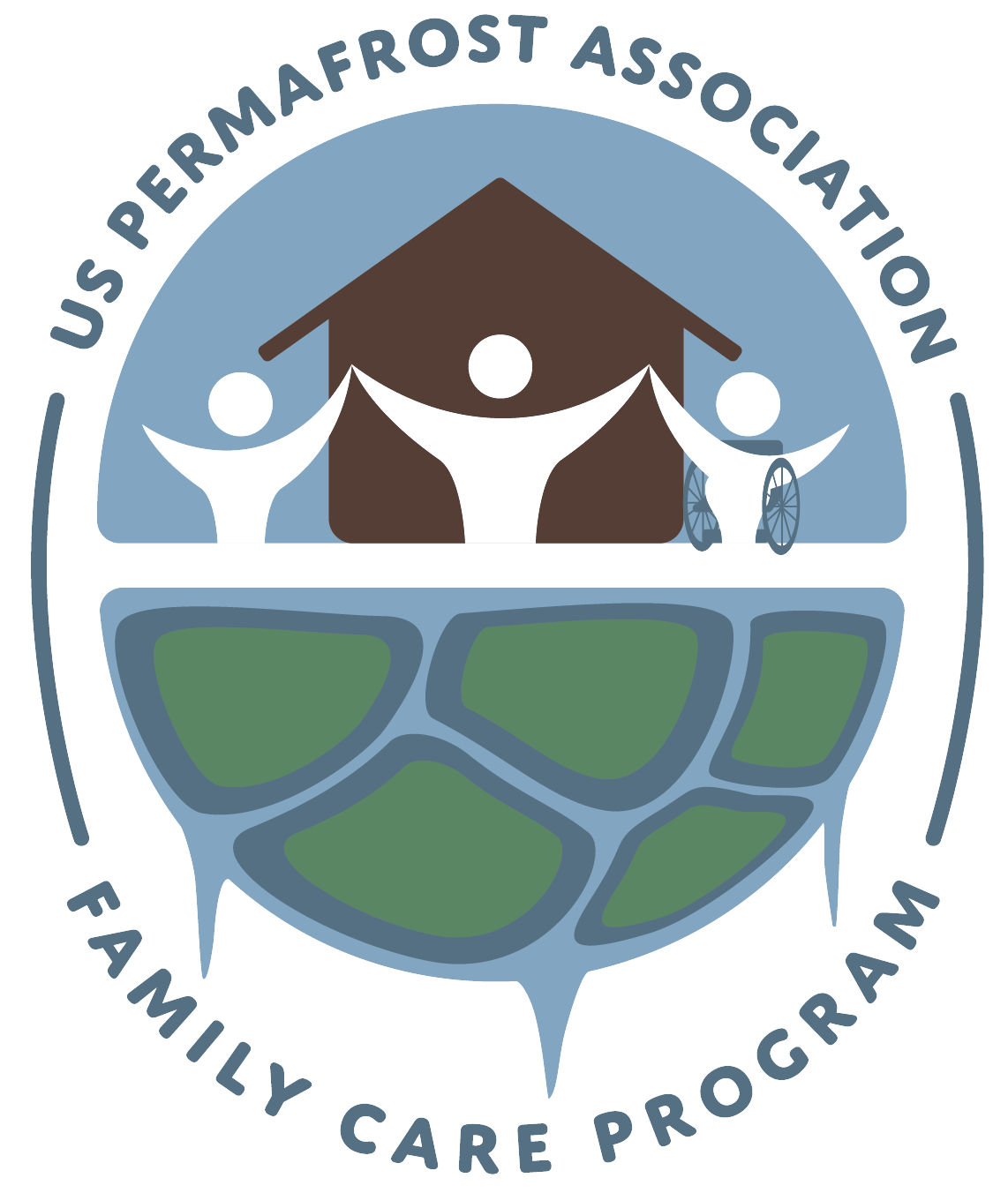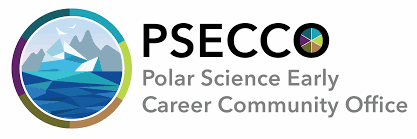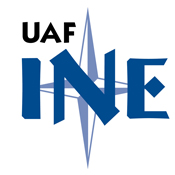 USPA Family Care Program (FCP) USPA Family Care Program (FCP)
The USPA Family Care Program (FCP) was created to support and recognize the additional financial and logistical burdens placed upon families within the permafrost community. We believe that caregivers should not have to constantly make the hard choice between personal obligations and career success. The USPA aims to support researchers in diverse familial situations with this novel and newly launched program providing caregiver grants for all types of human care for permafrost families. In addition, the program will organize and host events and provide resources for balancing work and care responsibilities.
Family care, such as childcare or elder care, is often not an allowable expense on research grants which can create both financial and logistical burdens on permafrost researchers. These care responsibilities can sometimes prevent permafrost scientists and engineers from performing work duties, such as conducting fieldwork, or attending meetings and conferences. The purpose of the FCP is to provide financial support to alleviate research-related financial burdens, thus improving accessibility and inclusivity for caregivers in permafrost-related fields.
Summer 2025 Caregiver Awards have been awarded!
Congratulations to this cycle's recipients!
Mohammad Abweny, Ph.D. Candidate, Clarkson University
Dr. Elizabeth Webb, Postdoctoral Research Fellow, Duke University
Fund Eligibility:
Caregiver awards support permafrost-related work for researchers, scientists, and engineers at US-based institutions and companies. Only current USPA members (prior to applying) are eligible for the award. If you are not a current member, please become a new member or renew your lapsed membership before continuing with the application.
Funding distributed by the FCP can be used for any additional caregiving expenses related to conducting travel-related work activities. Examples include, but are not limited to: travel and other costs associated with bringing dependents to meetings and field sites, compensation for professional or informal caregivers in the primary caregiver’s absence, travel expenses such as transportation for an alternate caregiver to travel to the dependent’s home or to accompany the primary caregiver and the dependent to the conference/fieldwork, and breast milk or medicine storage and shipping.
We accept applications for all types of human care for family members of the permafrost community. Our donation-sourced funds allow us to fund applicants from all career stages, unlike some other funding sources that have specific career stage requirements.
Application Process:
Applicants must be USPA members and funds can only support work that is related to permafrost science and engineering.
The use of funds will be available year-round with two deadlines to apply. These deadlines will be announced accordingly and will include the number of available awards for that funding cycle. Awards are currently set to $500 each and may change in the future depending on the availability of program funds.
Applications will be reviewed using a point system inspired by the USPA-PYRN Educational Fund committee. Applications will be reviewed by breaking down criteria categories such as: relevance of research to permafrost science or engineering, financial need, first or previous recipient and quality of materials presented.
Award Terms:
Two conditions will be attached to the awards that must be met by awardees. These conditions are in place to measure the program’s impact and to support the program’s longevity and growth.
(1) Acknowledge the award in all associated presentations and published peer-reviewed journal articles.
(2) Provide a short (less than 250 word) testimonial* of how the award was used and how it benefited the awardee’s permafrost-related activities.
(3) If awarded, provide a mailing address to receive funds.
*Testimonials can be anonymized at the discretion of the awardee to use in program fundraising efforts and in assessing the success of the program. Testimonials will also be featured on the program webpage.
FAQs:
(1) Can I submit two applications in a single application cycle, for example, one to support fieldwork and one to support going to a conference?
No, we only accept one application per person.
(2) Are non-US citizens eligible for a caregiver award?
Yes, both US citizens and non-citizens are eligible as long as you are based at a US institution or company.
(3) Can the caregiver award support fieldwork or conference attendance outside of the US?
Yes, the award supports work-related travel outside of the US as long as you are based at a US institution or company.
(4) How many funding cycles annually are there for an FCP caregiver award?
There are two deadlines annually for caregiver awards with application cycles announced accordingly. The goal is to provide funds for work that can occur at any time of the year.
(5) Can caregiver award applications be submitted to cover funds retroactively for work that happened previously?
No, we do not provide any funding to cover expenses for past care-related expenses that happened before the application period. We only accept applications for future work to occur during the time period specified on the call for applications. We are a new program and are making adjustments as needed, if the timing of application calls needs to be shifted, we encourage potential caregiver award applicants to reach out to FCP chair Melissa Ward Jones ([email protected]).
Program Funding Acknowledgements:
The USPA FCP is a self-funded program that is supported through individual donations, and a grant. We'd like to thank everyone for their support of the program. Our sponsors include Polar Science Early Career Community Office (PSECCO) through an accepted BAJEDI application (NSF Award #2135176) to support two grants for early career professionals. We also thank Arctic Foundations and an Anonymous Donor for their generous donations!
Thank you to all of our individual donors as well! FCP accepts donations year-round, please consider donating today! The program logo was created by Arctic Haven Studio through a donation from Melissa Ward Jones.
   
The Family Care Program was established in cooperation with the USPA. To ask questions or to get involved, please reach out to Melissa Ward Jones ([email protected]).
Past Award Recipients and Testimonials:
April 2024:
Jacqueline Hung (Research Scientist, Woodwell Climate Research Center; April 2024 Caregiver Award Recipient):
The USPA Family Care Program allowed me to continue conducting fieldwork while ensuring my personal obligations to my family were met. The FCP supported travel for my partner and 6-month-old son to Alaska, which allowed us to continue on our breastfeeding journey and alleviated dependent-care costs, while allowing me to fulfill my research goals and commitments. In the field, I continued maintenance of two tundra eddy covariance towers measuring high-frequency carbon dioxide and methane exchange. As part of this work, I maintained and installed new sensors measuring temperature and moisture across the active layer soil profile. Additionally, I oversaw a team collecting plot-level gas fluxes, aquatic samples for biogeochemical analysis, and vegetation cover, with the goal of estimating ecosystem carbon balance from permafrost-affected environments. Having my partner travel with us helped ease any worries pertaining to my son’s care as a first-time mom.
 Adrian Rocha (Associate Professor, University of Notre Dame; April 2024 Caregiver Award Recipient): Adrian Rocha (Associate Professor, University of Notre Dame; April 2024 Caregiver Award Recipient):I wish to express my gratitude to the United States Permafrost Association for providing funding through the Family Care Program Caregiver Award. Funds were used to support a research trip for my 12-year-old son to Toolik Lake Long Term Ecological Research Station on the North Slope of Alaska. My son was able to experience Arctic research firsthand, while building lifelong memories with his father. During his trip, my son worked on meteorological towers that were set up before he was born and helped me with daily research activities. He also had the chance to observe wildlife and go on nature hikes in the Arctic Wildlife Refuge in the Brooks Range. This week-long trip was an incredibly rewarding bonding experience for both of us—one that we will never forget. My son is already looking forward to the next research trip with his dad. Thank you, USPA, for making this unforgettable experience possible.
|